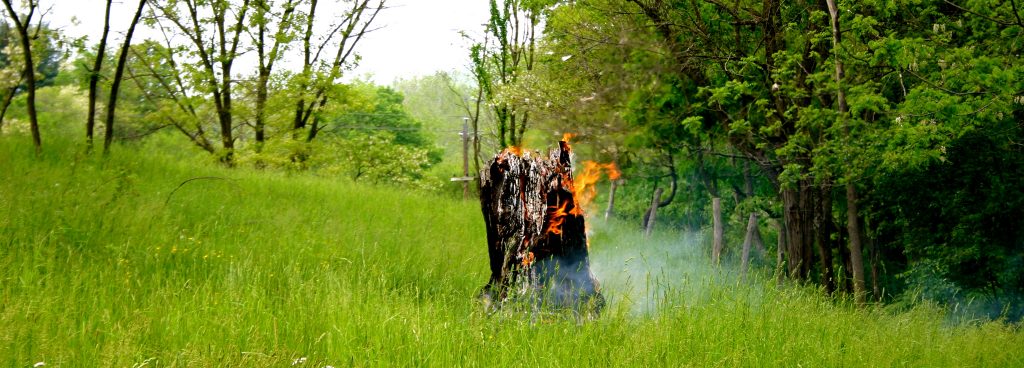When God Said Yes
We gathered to seek God’s will. We gathered to discern.
We were black and white Christians, about 15 of us, from Orlando, D.C., Richmond, Minneapolis, and Atlanta, from churches, non-profits, foundations, and the government. We met at a small farm in Virginia’s Shenandoah Valley, at Corhaven, a property set apart as a place to meet God. It is also hallowed as a place where at least 24 former slaves are buried.
Together we asked the questions: how can Christians concretely recognize the awful legacy of 400 years of racial oppression in the United States, and recognize the ongoing effects in the black community? How can Christians make statements and take actions that acknowledge and repent for this history? How can Christians recognize the ways that society and the church have benefitted from the long and still active history of racial injustice in our country? How can we express our grief and sorrow in a manner that leads to personal transformation and eventually acts of repair?
We gathered together to ask these questions. We gathered to hear from each other and to hear from God. We gathered to discern. We gathered to seek God’s heart and will. Throughout the morning, the prayers were deep, the conversations honest and painful, the laughter easy, and the tone sober, humble, and full of trust.
After lunch, our group walked in the bright sun through the pasture and up to the slave cemetery at Corhaven, hidden in a far corner of the original plantation. A group of eighth graders and their teachers from a school in Baltimore joined us. They, too, a community of black and white Christians.
I shared the history of the slave cemetery with them, as well as our efforts to create a space that remembers and honors those who were not shown honor during their lifetime. I told the story of how a large group cleared the graveyard of overgrowth, underbrush, and fallen trees, and an unexpected and unexplained fire had burst forth from the ground. When it happened, there was a profound and shared sense of something deep and real being released.

Then Max Finberg, a Christian of Jewish heritage, led the 30 people gathered at the cemetery in a devotional. We recalled another time when God unexpectedly caused flames to burst forth. He recalled the exodus of God’s people from Egypt 3,500 years ago, and their freedom from slavery. An event which has been remembered every year at Passover. In 3,500 years, they have never forgotten.
Max asked us to take off our shoes and socks, right there in the cemetery, in reverence. The place we were standing on was holy ground. It was awkward, uncomfortable, and dirty. And, it was absolutely right and powerful. Afterward, someone commented that, certainly, the last time a group of people had been barefoot in that place was for a burial.
We circled and joined hands for prayer. As soon as we did, the skies darkened and the wind began to blow. It was just breezes at first, but then powerful gusts of wind began bending the trees and sending leaves showering upon us.
Then a member of our group, David Bailey, led us in prayer. He requested a moment of silence, and as we complied, raindrops began to fall. When he started praying out loud, the rain came, and the wind blew. There we all were, many of us already in tears, standing barefoot in a slave cemetery. Our feet just inches from the bodies of our brothers and sisters, with only the dirt between us. Then the rain came strong and David kept praying, lamenting, crying, and calling out for healing. The rain kept falling.
My 10-year- old daughter tugged at my hand and whispered what we were all feeling, “God’s crying.”
Yes.
Others reflected that it was like a baptism and that it was like healing water coming down, Living Water, and it felt like there was a washing away of something dark.
Yes.
David prayed for about 10 minutes in that pouring rain and no one moved a step. When we all said “Amen,” the rain instantly stopped. When he started praying, the first drops fell and the winds picked up. When we stopped, so did the rain and the wind. We walked back across the pasture in sunlight, soaking wet, barefoot and quiet.
It was like being in a Bible story. Throughout the whole Scriptures, there are stories of how God used nature to say something: on Mount Sinai (Exodus 19), Mount Caramel (1 Kings 18), the Sea of Galilee, (Matthew 8, Mark 4), Golgotha (Matthew 27, Mark 15), and Jerusalem (Acts 2). I have never experienced anything like it. It was like being in a real, live Bible story. Just as the characters in those stories questioned what had happened, our group also wondered, “What does this mean?”
We asked aloud, “Should we move forward on this ‘repentance project’?” There was not much silence before one brother said clearly and bluntly, “God already told us. He said ‘Yes.’”
We all agreed. Before we even verbalized the question, God had already answered it.
More than a clear “Yes,” there was a deeper message that God had given us. As we stood barefoot on holy ground in the rain and in tears, praying as the wind blew, we all agreed that God had said to us, “I am with you.”
Therefore, we keep moving forward with this “Repentance Project.”
By Rev. Bill Haley

